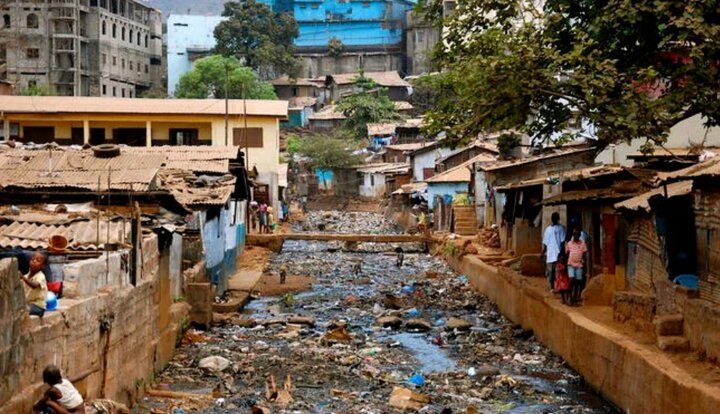Role of aid dependence in Sierra Leone’s vote against Iran

TEHRAN, Sep. 21 (MNA) – Sierra Leone recently voted against the extension of lifting UN sanctions on Iran, a decision that may be linked to its heavy reliance on British development aid.
Sierra Leone, one of West Africa’s poorest nations, recently voted against extending the lifting of sanctions on Iran at the United Nations Security Council. Analysts suggest the decision may reflect the country’s heavy reliance on British development aid, raising questions about how economic dependency influences foreign policy in vulnerable nations.
Sierra Leone, a small West African nation, is among the world’s least developed countries, ranking 185th out of 193 on the Human Development Index. Around 25% of its 8.8 million residents live in extreme poverty, and the country’s GDP per capita is $874.
A former British colony until 1961, Sierra Leone has faced a series of crises in recent decades. The civil war from 1991 to 2002 claimed between 50,000 and 200,000 lives and left lasting effects, including damaged infrastructure and generational trauma. The country was also heavily impacted by the 2014 Ebola outbreak, and in 2017, mudslides caused hundreds of deaths.
The poor African state has long relied on international aid to sustain critical sectors such as healthcare, education, and water provision. British development assistance has played a central role in these achievements, from expanding access to clean water and sanitation to improving secondary education and maternal health services. Programs like the Freetown WASH Consortium, the Secondary Education Improvement Program, and the Saving Lives initiative have collectively transformed the quality of life for hundreds of thousands of Sierra Leoneans.
Yet, this heavy reliance on foreign assistance exposes the country to political and economic pressures from donor nations. In the recent United Nations Security Council vote on extending the lifting of sanctions against Iran, Sierra Leone voted against the resolution. Analysts suggest that the country’s alignment with Western positions, particularly those of the United Kingdom, may reflect a calculated effort to maintain vital development aid. With the British government signaling cuts to its Official Development Assistance (ODA) budget—from 0.7% of GDP in 2021 to a planned 0.3% by 2027—maintaining favor with London could be a pragmatic priority for Freetown.
This dynamic raises broader questions about the independence of policy decisions in aid-dependent nations. While Sierra Leone has made remarkable progress over the last decade—life expectancy has increased by seven years and under-five mortality has fallen by roughly 25%—its vote at the UN illustrates how international economic leverage can shape diplomatic behavior. Countries facing severe poverty and infrastructural challenges may find themselves compelled to align with the interests of donor nations to secure continued assistance.
Meanwhile, the context of Iran’s international situation cannot be ignored. Following the United States’ withdrawal from the 2015 nuclear agreement in 2018, European signatories of the deal have failed to fully uphold their commitments, undermining the spirit of the accord. In 2025, the European parties to the JCPOA (France, Germany, and the UK) attempted to activate the so-called “snapback” mechanism to reimpose the terminated UN sanctions on Iran. Iranian officials and international legal experts have challenged the legitimacy of this process.
Sierra Leone’s vote against extending the lifting of sanctions thus sits at the intersection of poverty-driven dependency and geopolitics. The country’s decision may reflect more than diplomatic preference—it may also signify a survival strategy in the face of potential reductions in crucial international aid. In essence, aid dependence and historical ties to former colonial powers like the United Kingdom may have directly influenced Sierra Leone’s stance at the UN.
As debates continue over Iran’s nuclear program and the legality of snapback sanctions, Sierra Leone’s situation underscores a key challenge in global governance: the tension between national interests, international law, and the influence of wealthier states over vulnerable nations.





